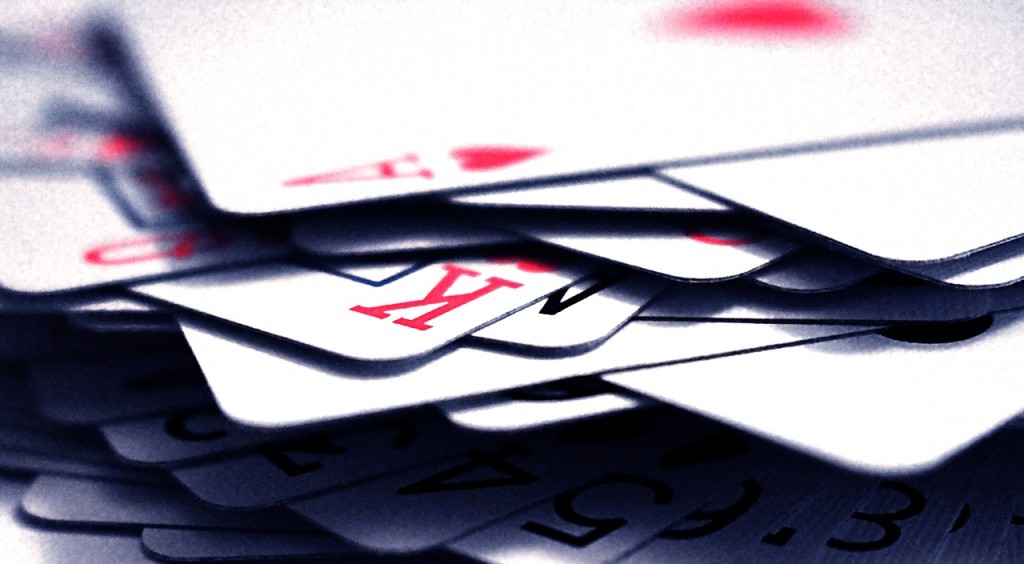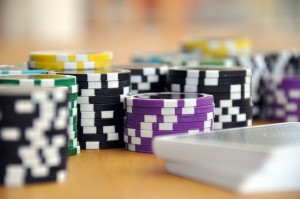- Calls to this hotline are currently being directed to Within Health, Fay or Eating Disorder Solutions
- Representatives are standing by 24/7 to help answer your questions
- All calls are confidential and HIPAA compliant
- There is no obligation or cost to call
- Eating Disorder Hope does not receive any commissions or fees dependent upon which provider you select
- Additional treatment providers are located on our directory or samhsa.gov
Binge Eating Disorder and Gambling

Contributor: Leigh Bell, BA, writer for Eating Disorder Hope
Researchers are beginning to search for possible links between binge eating disorder (BED) and pathological gambling because the two disorders share certain qualities. If a relationship exists and is discovered, we’ll have greater insight into the neurological mechanisms of these, and potentially many other, disorders.
Co-Occuring Disorders
Both BED and pathological gambling or gambling disorder were included as individual diagnoses in the DSM-5, the diagnostic bible to psychological illness. Although BED is diagnostically categorized as an eating disorder and gambling disorder as the only addictive disorder in the DSM-5, the two diagnoses share patterns of addiction and low impulse control.
BED is defined by recurrent, persistent episodes of binge eating – consuming unusually large amounts of food beyond fullness – without compensatory behaviors, like purging. BED is the most common eating disorder in the United States, where about 3.5% of women and 2% of men have the illness.
Impulse Control
 The nature and significance of gambling disorder features in individuals with BED is unknown, but both are characterized by impairments in impulse control. Evidence for this is shown when people with BED take the Iowa Gambling Task (IGT). Someone taking the IGT is told their goal is to win as much money as possible and lose as little money as possible. They are given four decks of cards, two of which has the potential to earn $100, and the other two have the potential to earn $50. Now, the $100 packs also carry greater risk of dollar loss.
The nature and significance of gambling disorder features in individuals with BED is unknown, but both are characterized by impairments in impulse control. Evidence for this is shown when people with BED take the Iowa Gambling Task (IGT). Someone taking the IGT is told their goal is to win as much money as possible and lose as little money as possible. They are given four decks of cards, two of which has the potential to earn $100, and the other two have the potential to earn $50. Now, the $100 packs also carry greater risk of dollar loss.
Most people who do this exercise quickly realize this risk of loss and pick only from the $50 decks, resulting in an overall gain. Pathological gamblers and people with BED, however, tend to do the opposite. They keep drawing from the $100 decks, hoping for greater gain. As the study said: Those with BED were “more inclined to behave in a disadvantageous manner by choosing immediate reward (high gains) despite long‐term consequences (loss of money); that is, they displayed a decision‐making deficiency.”
Impared Judgement
The study showed decision-making in those with BED was more impaired with greater severity of binge eating. The findings were not attributable to differences in educational levels.
Other research and hypotheses put BED into an addictive category, rather than the category of eating disorders. “Binge eating is addictive because it is an example of experiences people turn to and depend on as a way of dealing with life problems, just as people drink and turn to drugs.
“Addiction is the search for emotional satisfaction—for a sense of security, a sense of being loved, even a sense of control over life. But the gratification is temporary and illusory, and the behavior results instead in greater self-disgust, reduced psychological security, and poorer coping ability. That’s what all addictions have in common.”
These findings give us insight into both BED and pathological gambling, but they have little impact on seeking recovery from either disorder. People struggling should find help in whatever way with which they are comfortable.
Community Discussion – Share your thoughts here!
Have you or a loved one struggled with disordered eating and compulsive gambling? Did your recovery include treatment for both struggles? What advice do you have to share?
About the Author:
Leigh Bell holds a Bachelor of Arts in English with minors in Creative Writing and French from Loyola Marymount University in Los Angeles. She is a published author, journalist with 15 years of experience, and a recipient of the Rosalynn Carter Fellowship for Mental Health Journalism. Leigh is recovered from a near-fatal, decade-long battle with anorexia and the mother of three young, rambunctious children.
References
- Yip, S., White, M., Grilo, C., & Potenza, M. (2010). An exploratory study of clinical measures associated with subsyndromal pathological gambling in patients with binge eating disorder. Journal of Gambling Studies, 27(2), 257-270.
- Danner, U., Ouwehand, C., Haastert, N., Hornsveld, H., & Ridder, D. (2011). Decision-making impairments in women with binge eating disorder in comparison with obese and normal weight women. European Eating Disorders Review, 20(1), 56-62.
The opinions and views of our guest contributors are shared to provide a broad perspective of eating disorders. These are not necessarily the views of Eating Disorder Hope, but an effort to offer a discussion of various issues by different concerned individuals. We at Eating Disorder Hope understand that eating disorders result from a combination of environmental and genetic factors. If you or a loved one are suffering from an eating disorder, please know that there is hope for you, and seek immediate professional help.
Last Updated & Reviewed By: Jacquelyn Ekern, MS, LPC on September 21, 2015. Published on EatingDisorderHope.com

The EatingDisorderHope.com editorial team comprises experienced writers, editors, and medical reviewers specializing in eating disorders, treatment, and mental and behavioral health.

